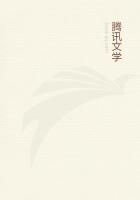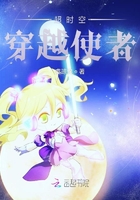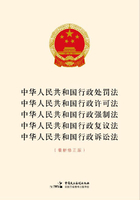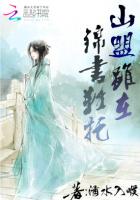At mid-day the guests arrived. They consisted of Dr. Cornelius, Vienna's most learned scholar; Taddeo Mainardi, the painter; a Danish student from the University of Wittenberg; a young English nobleman, who was travelling in Italy; and Guido da Siena, philosopher and poet, who was said to be the handsomest man in Italy. The Doctor set before his guests a precious wine from Cyprus, in which he toasted them, although as a rule he drank only water. The meal was served in the cool loggia overlooking the bay, and the talk, which was of the men and books of many climes, flowed like a rippling stream on which the sunshine of laughter lightly played.
The student asked the Doctor whether in Italy men of taste took any interest in the recent experiments of a French Huguenot, who professed to be able to send people into a trance. Moreover, the patient when in the trance, so it was alleged, was able to act as a bridge between the material and the spiritual worlds, and the dead could be summoned and made to speak through the unconscious patient.
"We take no thought of such things here," said the Doctor. "In my youth, when I studied in the North, experiments of that nature exercised a powerful sway over my mind. I dabbled in alchemy; I tried and indeed considered that I succeeded in raising spirits and visions; but two things are necessary for such a study: youth, and the mists of the Northern country. Here the generous sun kills such phantasies.
There are no phantoms here. Moreover, I am convinced that in all such experiments success depends on the state of mind of the inquirer, which not only persuades, but indeed compels itself by a strange magnetic quality to see the vision it desires. In my youth I considered that I had evoked visions of Satan and Helen of Troy, and what not--such things are fit for the young. We greybeards have more serious things to occupy us, and when a man has one foot in the grave, he has no time to waste."
"To my mind," said the painter, "this world has sufficient beauty and mystery to satisfy the most ardent inquirer."
"But," said the Englishman, "is not this world a phantom and a dream as insubstantial as the visions of the ardent mind?"
"Men and women are the only study fit for a man," interrupted Guido, "and as for the philosopher's stone I have found it. I found it some months ago in a garden at Sorrento. It is a pearl radiant with all the hues of the rainbow."
"With regard to that matter," said the Doctor, "we will have some talk later. The wench's brother has returned from the war. We must find her a husband."
"You misunderstand me," said Guido. "You do not think I am going to throw my precious pearl to the swine? I have sworn to wed Margherita, and wed her I shall, and that swiftly."
"Such an act of folly would only lead," said the Doctor, "to your unhappiness and to hers. It is the selfish act of a fool. You must not think of it."
"Ah!" said Guido, "you are young at seventy, Doctor, but you were old at twenty-five, and you cannot know what these things mean."
"I was young in my day," said the Doctor, "and I found many such pearls; believe me, they are all very well in their native shell. To move them is to destroy their beauty."
"You do not understand," said Guido. "I have loved countless times; but she is different. You never felt the revelation of the real, true thing that is different from all the rest and transforms a man's life."
"No," said the Doctor, "I confess that to me it was always the same thing." And for the second time that day the Doctor shivered, he knew not why.
Soon after the meal was over the guests departed, and although the Doctor detained Guido and endeavoured to persuade him to listen to the voice of reason and commonsense, his efforts were in vain. Guido had determined to wed Margherita.
"Besides which, if I left her now, I should bring shame and ruin on her," he said.
The Doctor started--a familiar voice seemed to whisper in his ear:
"She is not the first one." A strange shudder passed through him, and he distinctly heard a mocking voice laughing. "Go your way," he said, "but do not come and complain to me if you bring unhappiness on yourself and her."
Guido departed and the Doctor retired to enjoy his siesta.
For the first time during all the years he had lived at Naples the Doctor was not able to sleep. "This and the hallucinations I have suffered from to-day come from drinking that Cyprus wine," he said to himself.
He lay in the darkened room tossing uneasily on his bed and sleep would not come to him. Stranger still, before his eyes fiery letters seemed to dance before him in the air. At seven o'clock he went out into the garden. Never had he beheld a more glorious evening. He strolled down towards the seashore and watched the sunset. Mount Vesuvius seemed to have dissolved into a rosy haze; the waves of the sea were phosphorescent. A fisherman was singing in his boat. The sky was an apocalypse of glory and peace.
The Doctor sighed and watched the pageant of light until it faded and the stars lit up the magical blue darkness. Then out of the night came another song--a song which seemed familiar to the Doctor, although for the moment he could not place it, about a King in the Northern Country who was faithful to the grave and to whom his dying mistress a golden beaker gave.
"Strange," thought the Doctor, "it must come from some Northern fishing smack," and he went home.
He sat reading in his study until midnight, and for the first time in thirty years he could not fix his mind on his book. For the vision of the sunset and the song of the Northern fisherman, which in some unaccountable way brought back to him the days of his youth, kept on surging up in his mind.
Twelve o'clock struck. He rose to go to bed, and as he did so he heard a loud knock at the door.
"Come in," said the Doctor, but his voice faltered ("the Cyprus wine again!" he thought), and his heart beat loudly.
The door opened and an icy draught blew into the room. The visitor beckoned, but spoke no word, and Doctor Faust rose and followed him into the outer darkness.

